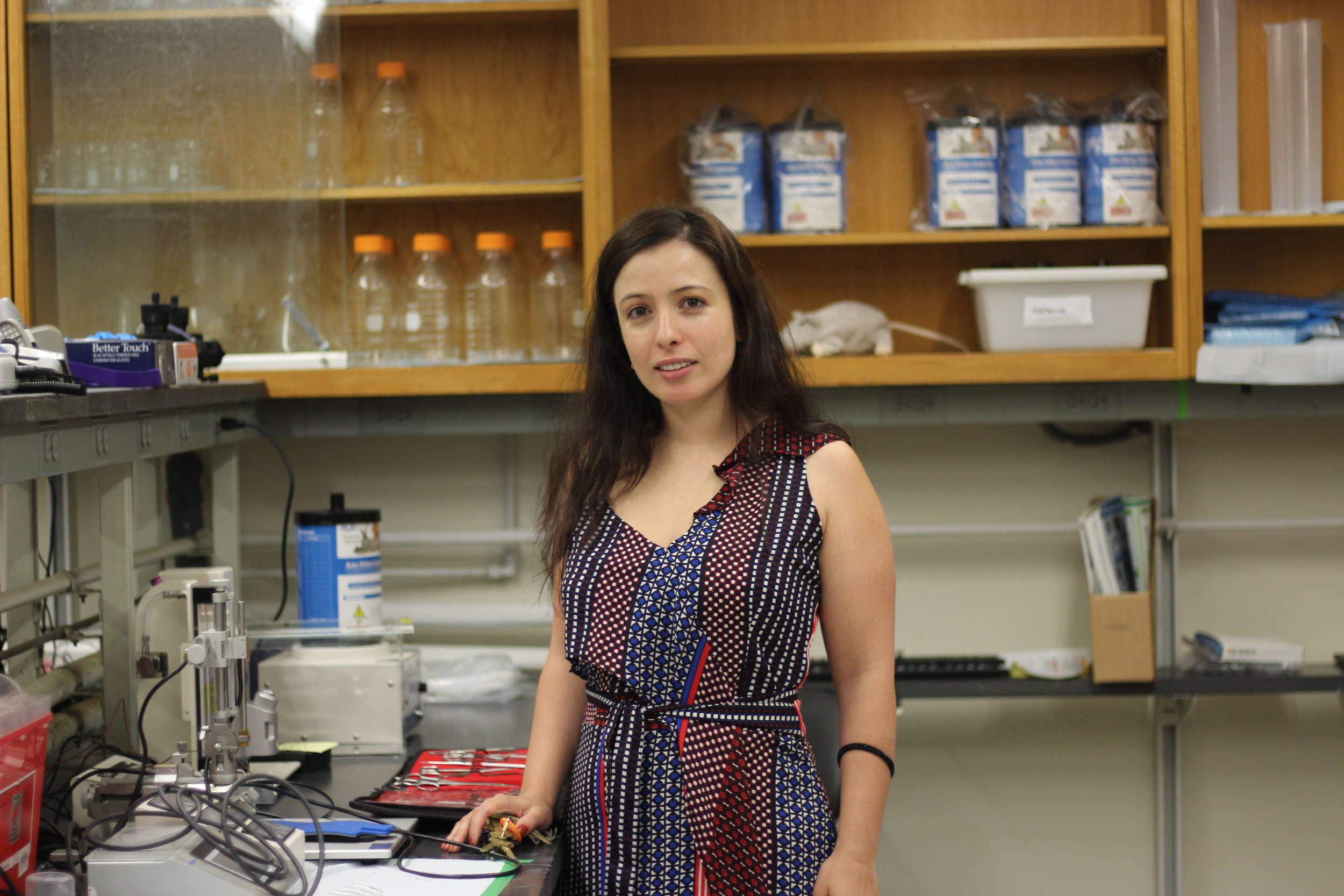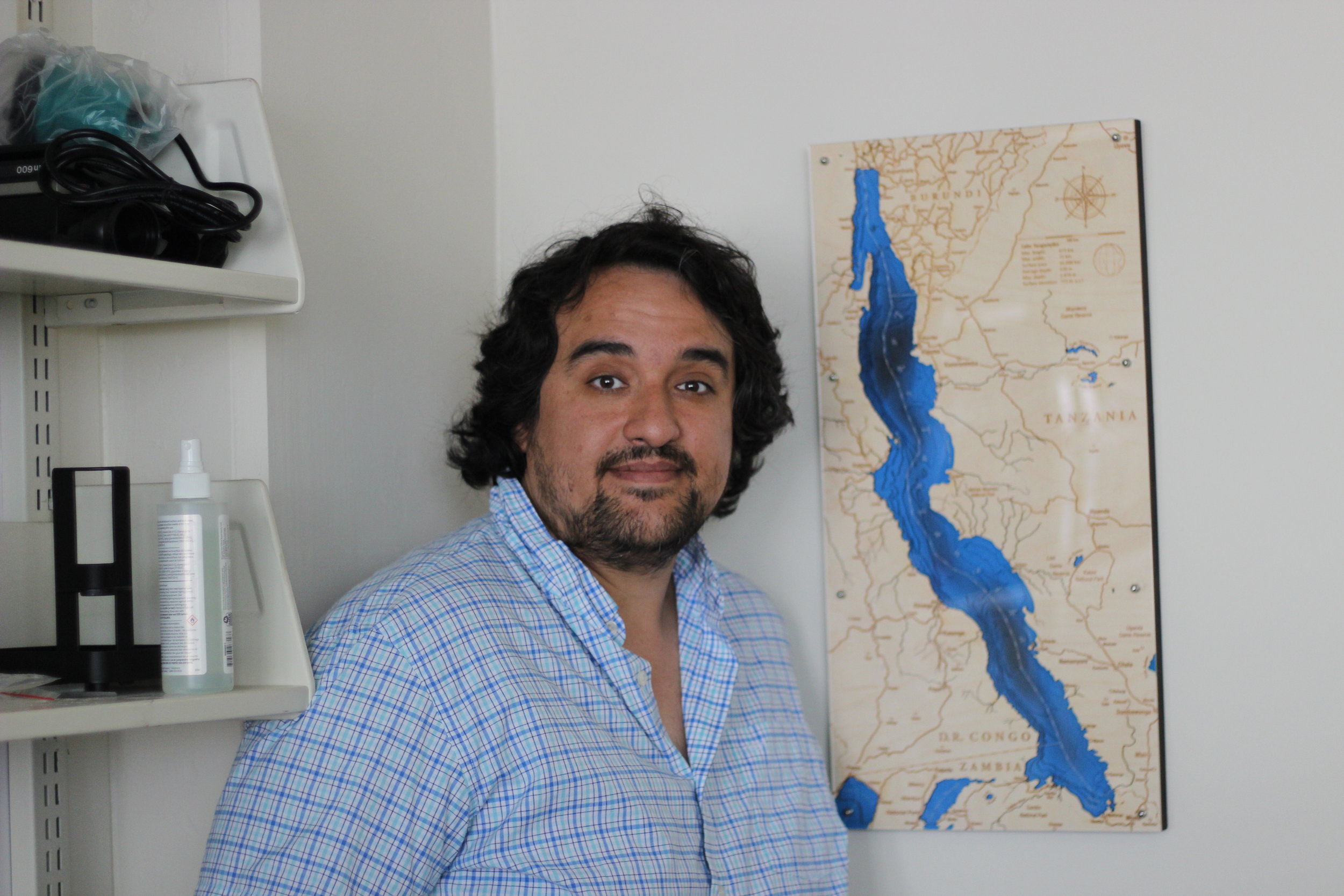Two Queens College profs bridge the gap between science and fiction
/Queens College Professor Maral Tajerian, who consults for Marvel, in her lab. Eagle photo by Victoria Merlino
By Victoria Merlino
Ever wondered what makes the Avengers’ Hawkeye such an amazing archer? Or how Rocket Raccoon from “Guardians of the Galaxy” can fit human intelligence in a small mammal’s body?
If you’ve questioned whether the science in your favorite sci-fi flick is more fantasy than reality, then look no further than Flushing — and Queens College professors Maral Tajerian and Sebastian Alvarado — for the answer.
The wife-and-husband team marries science and fiction through their business Thwacke Consulting, which advises companies — including Marvel — on video games, film, and TV in order to make the world a brighter, more scientifically accurate place.
Tajerian and Alvarado founded the company when they were living in the same graduate student residence at McGill University in Canada. Though they were busy with their studies — Tajerian in the Department of Neurology and Neurosurgery and Alvarado in the Department of Pharmacology — they both had a passion for video games.
Sebastian Alvarado with a map of Africa’s Lake Tanganyika, home of the fish he studies. Eagle photo by Victoria Merlino
“Fallout 3 was always my favorite. I’ve spent so many hours playing that game, I don’t know how I finished my Ph.D.,” Tajerian said with a laugh, gesturing toward the Fallout 3 figurines displayed in her office. “And he’s even worse,” she said of Alvarado, who used to play-test video games in his free time.
The games were great — the only problem was the science.
“On one of those trips [play-testing games],” Alvarado said. “I saw somebody Wikipedia-ing the word ‘DNA’ and I was just kind of like, ‘OK, perhaps there is a nice gap that can be filled.”
If consumers were willing to shell out big bucks for games, and companies were willing to pay for elaborate graphics and tight gameplay, maybe they would also pay scientists to ensure the science was accurate, too, Tajerian and Alvarado reasoned
And so Thwacke was born. Tajerian said the business has consistently expanded since its launch in 2013. The company now has over 100 consultants in a variety of scientific fields, she said. Thwacke has consulted on a number of different projects, from video games like critically acclaimed 2013 video game “Outlast” to an exhibition on the science behind some of the most popular characters in the Marvel Cinematic Universe called “The Avengers S.T.A.T.I.O.N.”
Alvarado recently wrote a book, “The Science of Marvel,” that delves even deeper into the science that powers some of Earth’s mightiest heroes.
When they’re not consulting, Tajerian and Alvarado use their own superpowers to research and teach. Both were hired last year as assistant professors at Queens College after a stint at Stanford University in California, where they ran labs and taught classes.
Tajerian conducts groundbreaking research on chronic pain, looking at previously understudied elements in the brain with the goal of eventually eradicating chronic pain entirely.
“Sometimes students who are interested in working in that, they're like, ‘Oh, because you are interested in chronic pain, do you work on making a better opioid or a better painkiller?’” Tajerian said. “And I'm like, ‘No, no, no. That's like making a better mousetrap. I want to get rid of the mice, not make a better mousetrap, you know?’ So that's the direction we're thinking about right now.”
Meanwhile, Alvarado researches a type of cichlid fish that lives in Africa’s Lake Tanganyika, exploring a range of topics, including behavioral neuroscience, molecular mechanisms in color change and how environment can affect genes.
Alvarado and Tajerian said their partnership enables them to juggle their business, their research, their teaching and their three kids. Though being collaborators may not work for every couple, Tajerian said, it does have its benefits for them, including trust and an ease of access to a business partner — allowing for conveniences like conducting meetings on car rides to work.
“It's a labor of love, in many ways,” Tajerian said.





